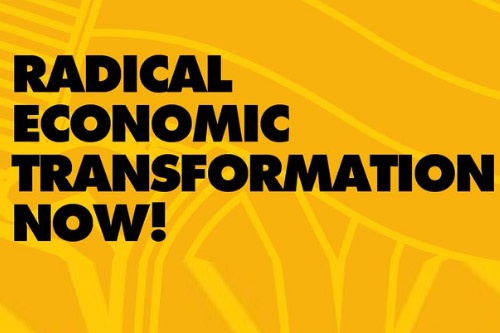Retail stocks will likely bear the brunt of tax increases, should South African Finance Minister Tito Mboweni target consumers with revenue-raising measures in his Budget Wednesday.
Consumer spending power in South Africa is under severe strain, with confidence at a two-year low against a backdrop of a 30% unemployment rate and an economy that hasn’t achieved a 2% annual growth rate since 2013. Economists see an outside chance that Mboweni will increase the valued-added tax rate, with such a move predicted by five out of 19 surveyed by Bloomberg.
The blow from a higher VAT rate would be felt more by clothing retailers than by food stores as consumers adjust, said Henre Herselman, a derivatives trader at Anchor Private Clients.
Increasing taxes could further reduce consumer spending and perpetuate the economic malaise, said Sandy McGregor, a money manager at Allan Gray. Raising the VAT rate is politically unpalatable, while increasing personal tax rates may accelerate emigration.
The market hasn’t priced in a VAT increase and a decision to do that could see retailers take a knock, said Investec Wealth & Investment Chief Investment Strategist Chris Holdsworth.
Higher taxes would translate to lower disposable income, which would filter through to stocks, said Casparus Treurnicht, a money manager at Gryphon Asset Management. If this happens, “expect depressed valuation levels for longer.”
More broadly, investors will be looking to Mboweni for signs of a plan to rein in debt and stave off the loss of South Africa’s last investment-grade credit rating in a review by Moody’s Investors Service due next month. Bailouts for power utility Eskom Holdings SOC Ltd. and other state-owned companies, plus a wage bill that accounts for 35% of spending have contributed to pressure on government finances.
“The key objective of this budget should be to table a plausible plan to manage the wage bill and interim funding for Eskom,” McGregor said by email.
For Investec’s Holdsworth, the primary concern for investors is the outlook for debt as a ratio of gross domestic product. He cited Treasury projections showing debt surging to 81% of GDP in the 2028 fiscal year unless urgent action is taken. “The first thing that investors want to see is that peak, and they want to see where it is going to start coming down.”
Article: News24




